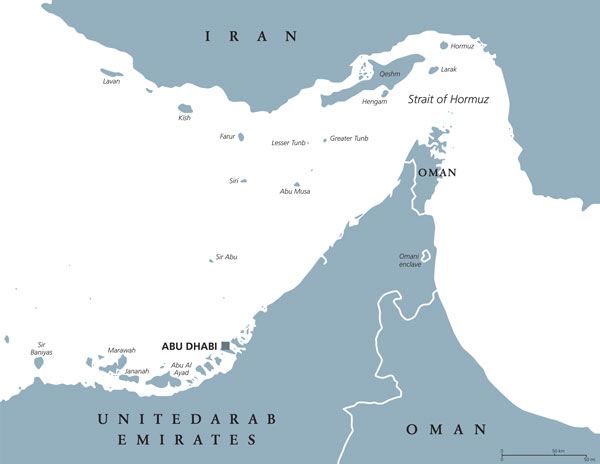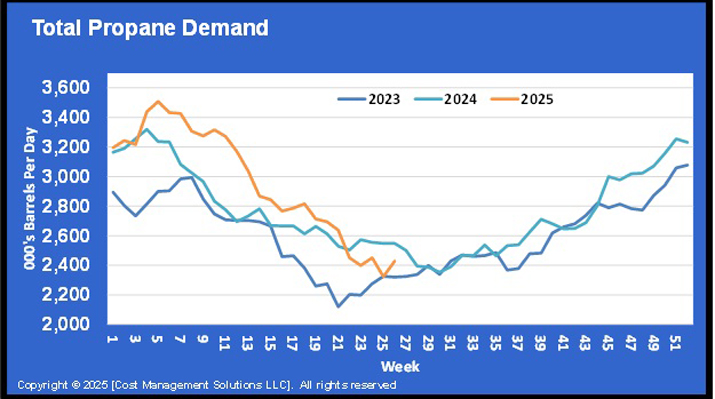Middle East tension may affect global crude supply
Crude oil prices are moving higher with the potential for carrying propane prices along for the ride. There is a speculative premium being added to crude as tension in the Middle East increases between Saudi Arabia and Iran.
All too regularly we show a map of the Strait of Hormuz because shipping traffic passing through it is being threatened by Iran. The strait is located on the coast of Iran. It is 21 miles wide at its narrowest point. Through that tight window, about a fifth of the world’s crude supply passes. All of the nations around the Persian Gulf send their crude tankers through the strait. The map illustrates its strategic importance to global crude supply.
Tension between the United States and Iran increased because of sanctions on Iran by the United States that have cut its crude exports from 2.4 million barrels per day (bpd) to below a million bpd. Some believe the elimination of waivers at the beginning of this month, that allowed some nations to buy Iranian crude, will drop Iran’s crude exports to 500,000 bpd. The loss of oil revenue has been devastating to Iran’s economy.
Of course, the goal of the United States is to eliminate the revenue from crude sales that it believes Iran uses to develop nuclear weapons, missiles, fund terrorism around the world and insurgencies in the Middle East. Iran has said if it cannot use the Strait of Hormuz, no other country will be allowed to use it. That comment suggested that if the United States successfully reduces Iran’s crude exports to zero, it would close the strait.
Obviously, Iran has a major tactical advantage in any military conflict near the Strait of Hormuz. The United States has sent a carrier strike group and a bomber wing to the region following credible threats to U.S. interest by Iran. Iran has said it could easily destroy the naval group with land-based missiles that would be very hard to retaliate against. Further, the United States is removing personnel from Iraq on Iranian threats to U.S. assets in that country.
Last week, two Saudi oil tankers and two other commercial vessels off the coast of the United Arab Emirates were sabotaged as they waited to go through the strait, causing significant damage to the vessels. An assessment of the damage by experts concluded the attack was likely carried out by Iran, though it denies having any involvement. The incident ratcheted up the tension in the region another notch.
After the attacks on the crude tankers, Iranian-backed Houthis took credit for drone attacks that damaged crude oil pumping stations inside Saudi Arabia. Saudi Arabia responded with air attacks on Sanaa in Yemen. Sanaa is the capital of the Houthis. The Houthis are backed by Iran in its efforts to control Yemen. Saudi Arabia has been fighting the Houthis for four years, trying to restore the internationally recognized government of Yemen and an ally of Saudi Arabia.
Many nations are dependent on the oil or the revenue from the oil sales supplied from the Middle East and must traverse the Strait of Hormuz. For that reason, one would expect nations in Europe, the Middle East and even China and India might join the United States in defending ship traffic out of the Persian Gulf and through the strait. That might keep Iran at bay and limit it to the sabotage-type attacks like the ones that were carried out last week. But, the regime in Iran is under pressure due to economic hardships exacerbated by the U.S. sanctions. The potential for a major confrontation is as great as it’s ever been.
Call Cost Management Solutions today for more information about how Client Services can enhance your business at (888) 441-3338 or drop us an email at info@propanecost.com.

















